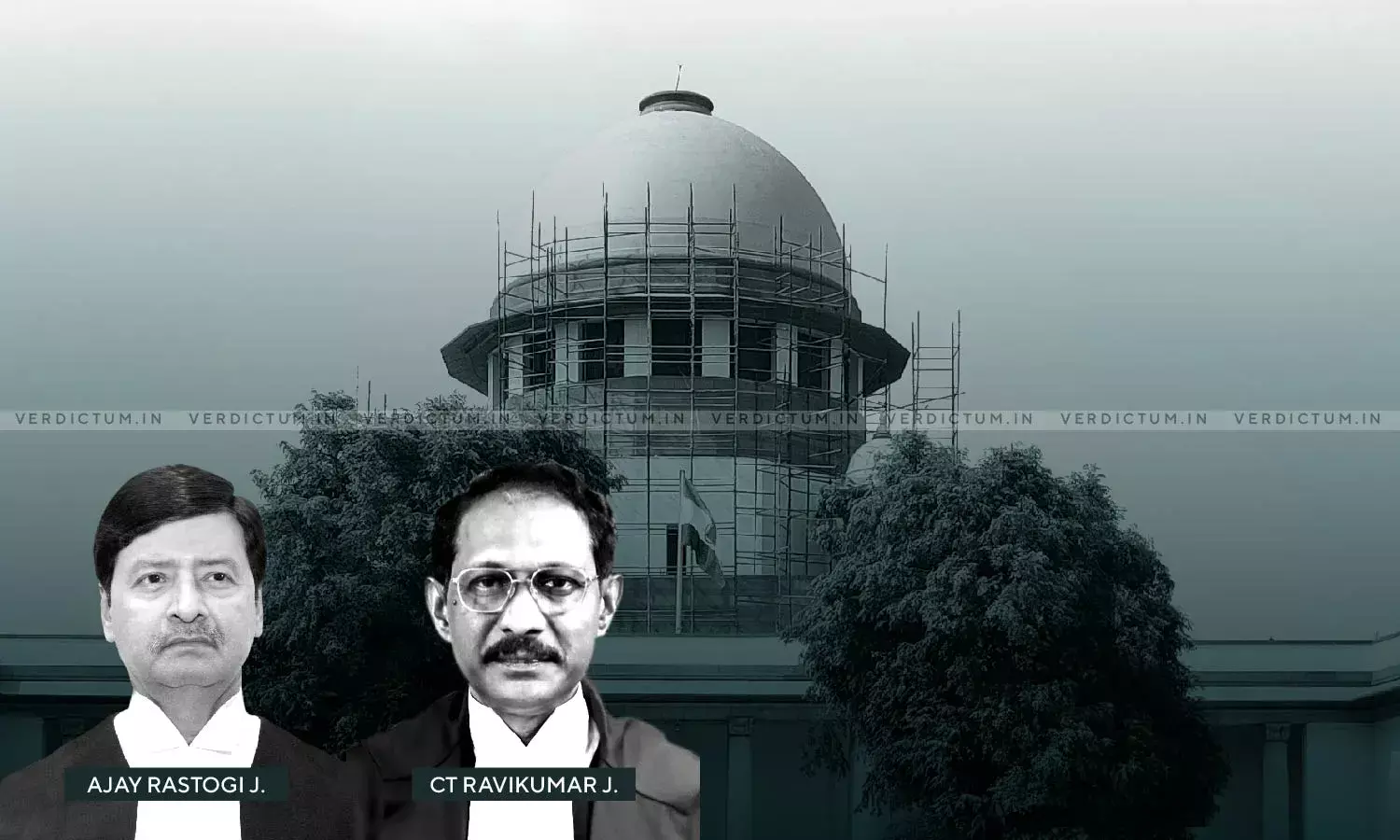Correctness Of Last Seen Theory Is Doubtful: Supreme Court Acquits Man Convicted In A Murder Case

The Supreme Court in an appeal has recently acquitted a man in a murder case on the ground that the correctness of the last-seen theory is doubtful. The accused was convicted under Section 302 read with Section 34 of the Indian Penal Code.
The two-Judge Bench of Justice Ajay Rastogi and Justice C.T. Ravikumar held, “… in a nutshell the correctness of the last seen version emanating from PW-8-Chintaman becomes doubtful, especially against the appellants herein. As noticed earlier, virtually, the oral testimonies of PW-8 and PW-10 are at variance about the last seen and it becomes inconclusive for the reasons mentioned hereinbefore. We have also found that the prosecution has miserably failed to prove the alleged motive.”
The appellant had preferred an appeal against the judgment passed by the Bombay High Court, Nagpur Bench.
Advocates Sanjay Jain and Sunil Kumar Verma appeared on behalf of the appellant/convict while Advocate Sachin Patil appeared on behalf of the respondent/State.
In this case, the appellant along with the other accused was convicted of having committed the murder of a person and was sentenced to suffer imprisonment for life besides imposing a fine of Rs.500/- and in default of payment of the fine, to suffer rigorous imprisonment for one month each. Thereafter, the High Court confirmed the conviction and sentence imposed by the Trial Court.
The Supreme Court in view of the facts of the case observed, “… it is unsafe to rest on the sole testimony of PW-8 to apply the ‘last seen theory’ in this case against the appellants especially, going by PW-8 he had only nodding acquaintance with them.”
The Court noted that though the deceased had met with a homicidal death, it cannot be said that the rest of the circumstantial evidence culled out by the courts below unerringly points to the culpability of the appellant in the homicidal death.
“Even the recovery of the weapon and the dress, at the instance of the appellant in the latter appeal cannot, by itself, be conclusive as admittedly, the panch witnesses for their recovery also did not support the prosecution. In our considered view, the remaining circumstances relied on by the prosecution and held as proved by the courts below would not unerringly point to the guilt of the appellants”, said the Court.
The Court asserted that it is unsafe to maintain the conviction of the appellant and hence the benefit of doubt must be extended. The Court, therefore, discharged the bail bonds executed by the appellant.
Accordingly, the Court allowed the appeal and acquitted the appellant.
Cause Title- Shankar v. The State of Maharashtra
Click here to read/download the Judgment


